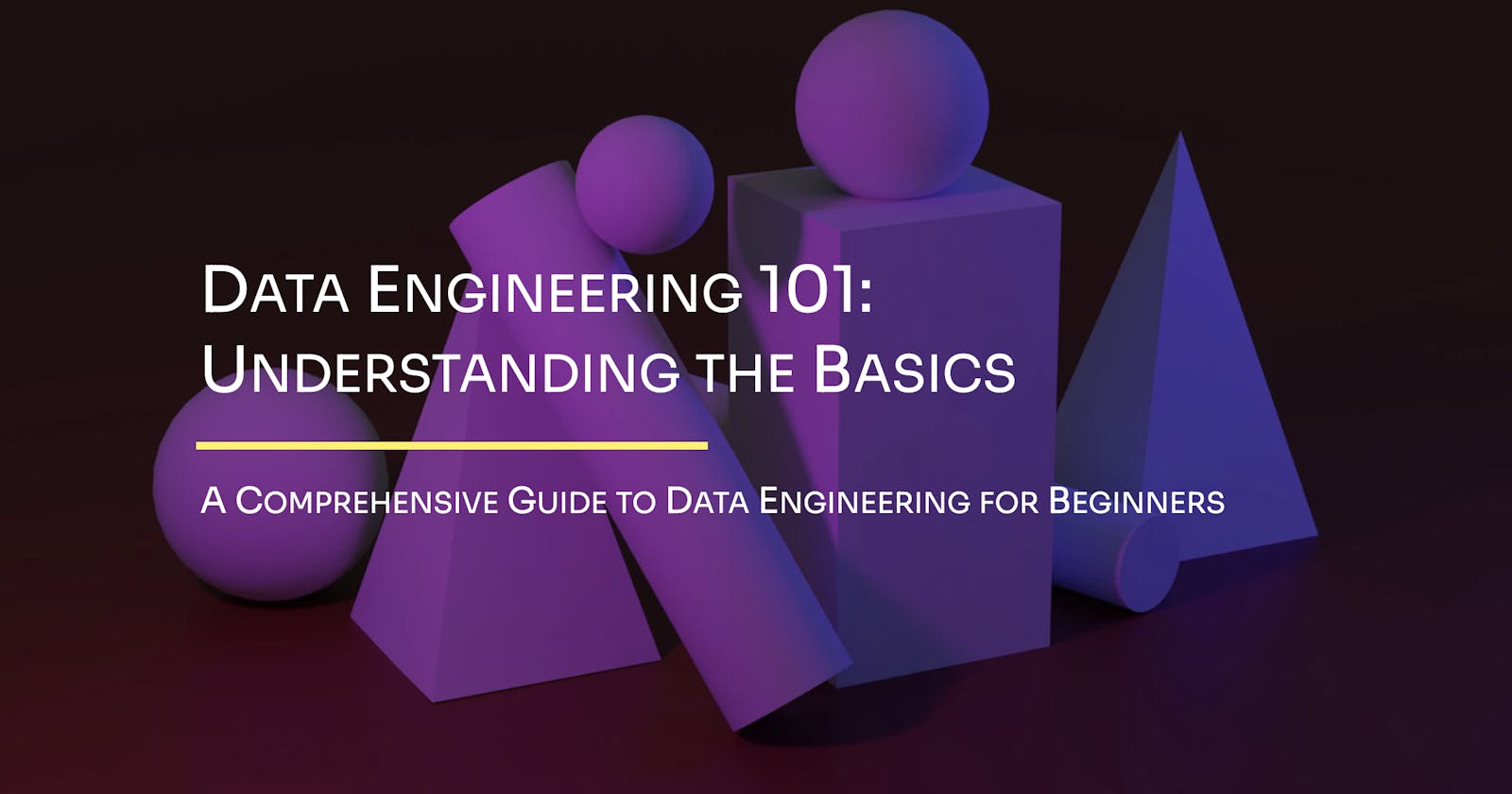Data Engineering 101: Understanding the Basics
A Comprehensive Guide to Data Engineering for Beginners
Data engineering is a critical component of any data-driven organization. It involves designing, building, and maintaining systems and infrastructure that enable businesses to collect, process, and analyze large volumes of data. This article provides a comprehensive guide to data engineering, covering the essential skills, tools, and frameworks used by data engineers in various industries.
What is Data Engineering?
Data engineering is developing, building, and managing the infrastructure to support data collection, storage, processing, and analysis. It combines technical skills and domain knowledge, including computer science, mathematics, and statistics.
Data engineers work with massive amounts of data and are responsible for designing systems that can process this data efficiently. They must also ensure the data is accurate, reliable, and secure. Data engineers work closely with data analysts and data scientists, who rely on the infrastructure they build to perform their work.
The Role of a Data Engineer
The role of a data engineer varies depending on the organization and the industry. However, data engineers are generally responsible for designing, building, and maintaining the infrastructure required for data processing and analysis. They work with large volumes of data and use various tools and technologies to ensure the data is accurate, reliable, and secure.
Data engineers are responsible for developing and maintaining data pipelines used to collect, process, and store data. They must ensure that these pipelines are efficient, reliable, and scalable. Data engineers also work on data warehousing, which involves collecting and storing data from multiple sources in a central location. This data is then used for analysis and reporting.
Essential Skills for Data Engineers
Data engineering requires a combination of technical skills and domain knowledge. Here are some of the essential skills that data engineers need to succeed:
Programming Languages: Data engineers must be proficient in Python, Java, and SQL. These languages are used to develop data pipelines and perform data analysis.
Distributed Computing: Data engineers must know about distributed computing systems like Hadoop and Spark. These systems are used to process large volumes of data across multiple servers.
Cloud Computing: Cloud computing has become an essential part of data engineering. Data engineers must know cloud computing platforms such as AWS, Azure, and Google Cloud, as these platforms provide scalable and cost-effective infrastructure for data processing and analysis.
Data Modeling: Data engineers must be proficient in data modeling, which involves designing data structures that are efficient, scalable, and maintainable.
Data Warehousing: Data engineers must know about data warehousing, which involves collecting and storing data from multiple sources in a central location.
Tools and Frameworks Used in Data Engineering
Data engineers use various tools and frameworks to collect, process, and analyze data. Here are some of the most commonly used tools and frameworks:
Apache Hadoop: Hadoop is an open-source framework for distributed storage and processing large datasets. Data engineers use Hadoop to manage and process data across multiple servers.
Apache Spark: Spark is a fast and powerful open-source engine for big data processing. It supports various programming languages, including Java, Scala, and Python, and can be used for batch processing, stream processing, and machine learning.
Apache Airflow: Airflow is an open-source platform to programmatically author, schedule, and monitor workflows. It allows data engineers to create and manage complex data pipelines with ease.
Apache Kafka: Kafka is an open-source distributed event streaming platform for real-time data processing and analysis. It enables data engineers to collect and process data in real time.
Amazon Web Services (AWS): AWS is a cloud computing platform that provides various data storage, processing, and analysis services. It includes services such as Amazon S3 for storage, Amazon EC2 for computing, and Amazon Redshift for data warehousing.
Microsoft Azure: Azure is a cloud computing platform similar to AWS, providing services for data storage, processing, and analysis. It includes services such as Azure Blob Storage for storage, Azure Data Factory for data integration, and Azure Synapse Analytics for data warehousing.
Conclusion
Data engineering is a crucial aspect of any data-driven organization. Data engineers are vital in designing, building, and maintaining the data processing and analysis infrastructure. They work with large volumes of data and use various tools and technologies to ensure the data is accurate, reliable, and secure.
To become a successful data engineer, one needs to have a combination of technical skills and domain knowledge, including programming languages, distributed computing, cloud computing, data modeling, and data warehousing. Familiarity with the most commonly used tools and frameworks, such as Hadoop, Spark, Airflow, Kafka, AWS, and Azure, is also essential.
